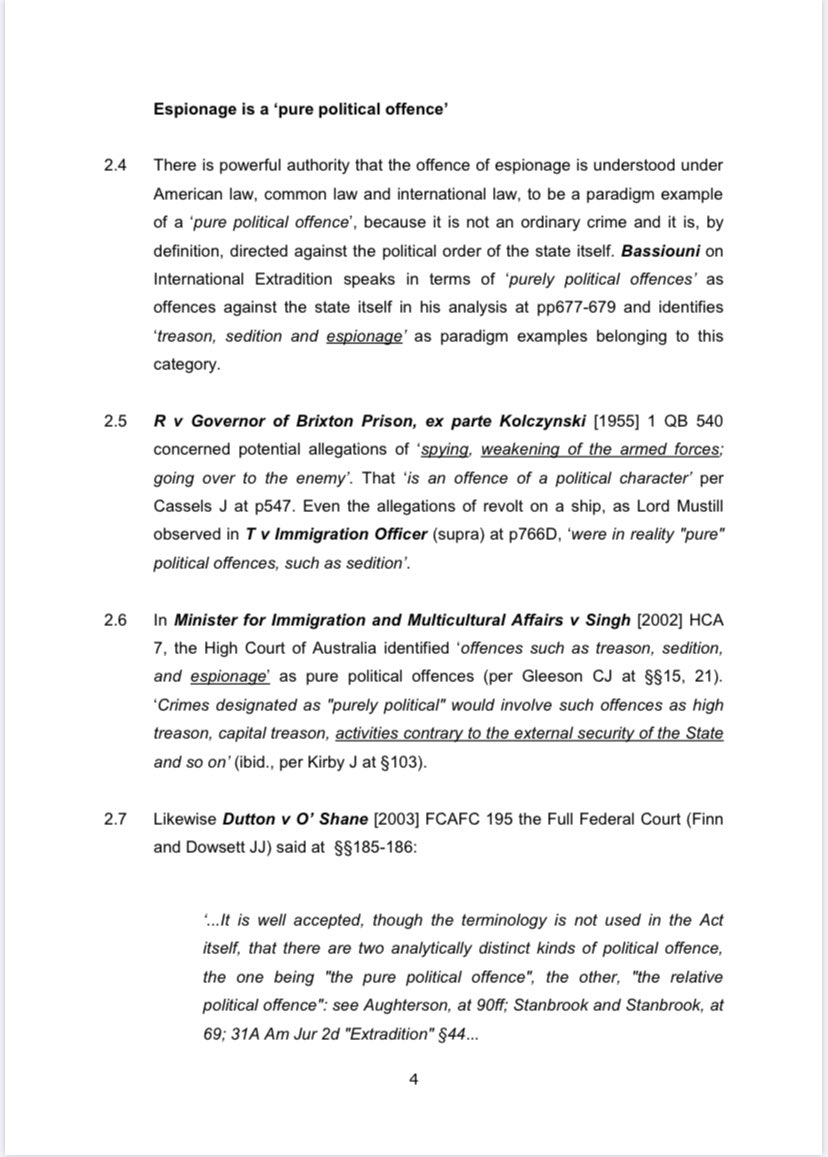Appearing for Assange (defense) are Edward Fitzgerald, Mark Summers and Florence Iveson.
District Judge Vanessa Baraitser is magistrate.
assets.publishing.service.gov.uk/government/upl…
The magistrate is now noting that a photo was taken in the courtroom “this week”; she adds that it is a criminal offence to take a photograph in a courtroom, and that if the person is identified they will be arrested and held in contempt of court.
The magistrate is asking him to summarise his position.
The magistrate replies that if Fitzgerald is seeking to establish that Assange’s detention is unlawful, Defense must establish that it is unlawful under English law.
The point is Fitzgerald is saying that Assange is being held for a political offence, and that this is in breach of these conventions and treaties, and therefore he should not be extradited...
amazon.co.uk/Terrorism-Crim…
“But it can’t be ignored,” Baraitser responds.
“I cannot pretend these are easy issues,” Fitzgerald says. “But they are fundamental.”
We will continue hearing about this issue after a short recess.
Fitzgerald is addressing whether the espionage-related charges outlined in the US indictment against Assange amount to a “political offence.”
The full US indictment is here: justice.gov/opa/press-rele…
Fitzgerald is raising a point about legal protections for those accused of “pure political crimes” dating back to legal issues for participants of this revolution who subsequently fled to England.
Assange stands and responds, complaining that “the problem is I cannot participate, I cannot privately communicate with my lawyers.”
Assange continues to object, saying he cannot participate as he cannot communicate privately with his lawyers.
The magistrate calls a five-minute recess.
Gareth Pierce asks the security personnel if she can enter the enclosure where he is being held, she is told no. She tells Assange she will “go down” to communicate with him, and he is taken away.
His defense team remains outside conferring.
Assange is seated on a bench in a glass-enclosed area at the back of the courtroom. If he wishes to speak directly to his lawyers, he must do so through gaps in the bullet-proof glass of the enclosure.
Baraitser says that she suspects the security team will not agree to this.
“Madam, that really is determinative of the issue,” Lewis says, adding that extradition hearings have very limited jurisdiction.
Gareth Pierce is conferring with Assange.
Baraitser asking Lewis to clarify if his assertion is that the term “political offence” is legally the same in the US and the UK.
Assange raises his fist above his head toward his supporters in the public gallery as he exits the dock.
The hearing will continue tomorrow.


































